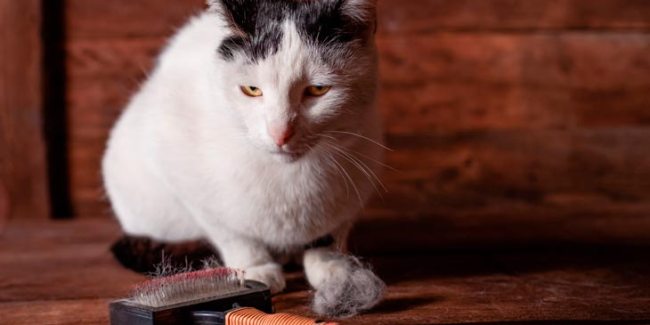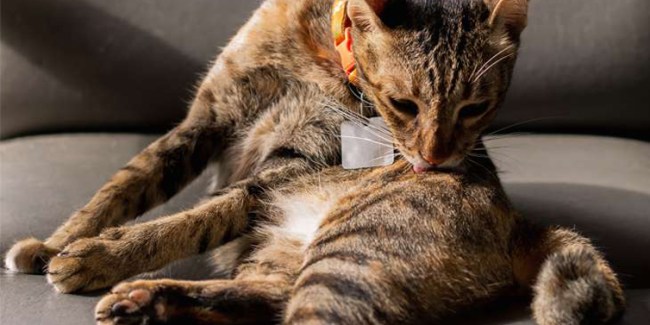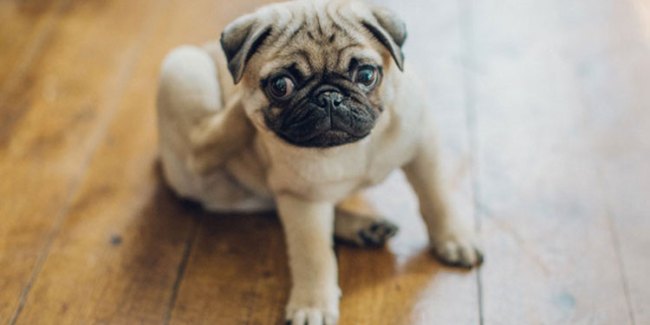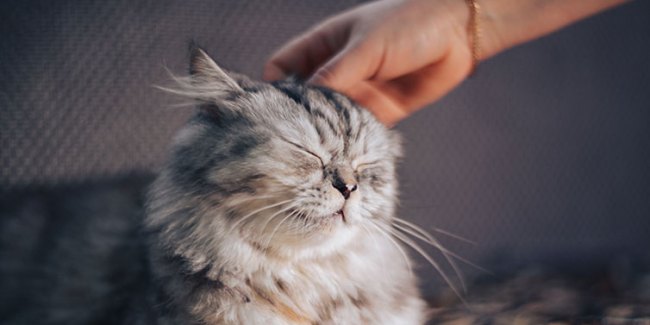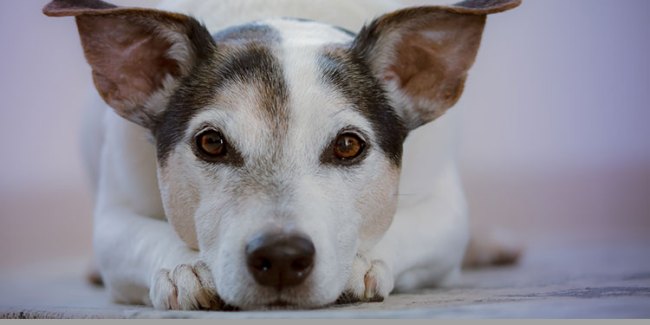Why Do Cats Purr and How? Learn What Your Cat Is Saying
It’s music to every cat lover’s ears – the sound of the feline purr. But do you really know when, how and why cats purr? The answers may surprise you.
CATS
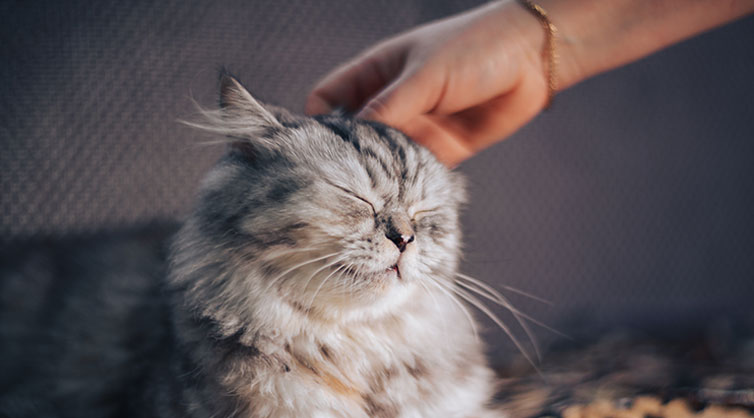
Posted by bravectosouthafrica – 14 October 2020
The Purr Is a Sign of What?
Nothing soothes the soul like the sound of cats purring. You may find that your cats commonly purr when being showered with TLC. The purring noise cats make may sound angelic, but haven’t you wondered whether it’s purely the result of contentment… Or something more? Discover the answer to the question ‘what does it mean when a cat purrs?’
How Do Cats Purr?
Researchers have studied cats’ purr for years and their work has recently started revealing how felines produce their signature vibration.
It’s now commonly thought that purring is a reaction that begins in a cat’s brain. A rhythmic and repetitive neural oscillator transmits information to their laryngeal muscles, causing them to start twitching between 25-150 vibrations per second. This results in the sudden separation of their vocal cords during inhalation and exhalation, causing the purr we all know and love.
You may be surprised to learn that domesticated cats aren’t the only members of the cat family who purr. There are wild cats and near relatives of the cat family who can also produce the distinctive noise, including:
- Civets
- Genets
- Guinea pigs
- Hyenas
- Mongooses
- Raccoons
Fun fact: big cats that can purr, like bobcats and mountain lions, can’t roar, while the big cats that can roar, like lions and tigers, can’t purr. Animal experts chalk this up to the fact that the structures surrounding these cats’ larynx aren’t rigid enough to result in a purr.
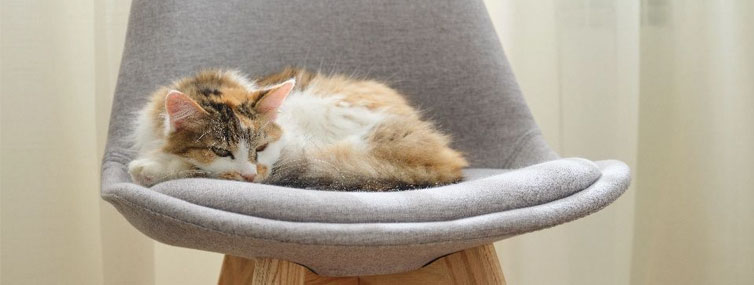
Purr-suasion
You may have noticed that your cat’s purring is at its most fervent whenever mealtime is near. This is no coincidence, as the domestic cat has learned to exploit their purring when hungry or they want something. Studies have found that the persistent purrs used during these times are combined with mews that resemble a human baby’s cry. This version of purring proposes that cats could have studied humans closely and adjusted their purr to get the desired reaction from us, based on our instinct to meet a crying baby’s needs.
Healing
Cats will purr when they are sick, injured, in pain or labour. They may even purr when close to death and kittens will start purring soon after birth. There are a handful of reasons why cats purr in situations like these, one of the foremost being that it’s an effective way for them to soothe themselves during stressful situations.
It’s also been theorised that low-frequency purrs (around 25 Hz) will result in a sequence of tremors within the body, which may act as a form of inbuilt physical therapy. It’s thought these vibrations can:
- Heal wounds and bones
- Mend tendons
- Build muscle
- Reduce swelling and pain
- Ease breathing
Human wounds treated in the same frequency also heal faster.

Forging Bonds
Newborn kittens purr and their mother also purrs while caring for them. In these moments of purring, an essential bond is forged. The mother’s purr acts as a ‘lullaby’ to her litter. Kittens purr to let their mother know of their location and that they’re okay.
There’s an instinctual reason behind this purring too. As kittens are blind and deaf for a period after birth, they can’t orientate themselves. Kittens require their mother’s body heat and milk to survive. A mother cat’s purrs help her kittens find her.
Expressing Happiness
Sure signs that your cat is happy is a relaxed expression with half-closed eyes, a mostly still tail and, naturally, purring.
Cats also communicate with each other through purring. They will often purr to indicate that they come in peace or want to play.
It’s not too difficult to figure out when your cat’s purr means they’re happy. Happy purrs are calming and soothing.
Good Vibrations
Studies show that cats are good for our health too. The benefits of owning a cat include reduced stress levels and a drop in blood pressure. Purring may be a direct contributor to these benefits. Experts have expressed that the purring noise acts as an auditory stimulus and some even credit the sound with feelings of peace and calm. It can improve your overall emotional wellbeing and help you relax.
Further studies have shown that the purr of a cat can trigger healing abilities in humans as it does for cats. When treating patients, doctors use vibrating effects similar to purring. Older patients have been documented to experience a decline in the rate of bone decay when undergoing treatment with hum-tones within the same frequency range as a cat’s purring.
Stephen Dowling writes in his article for BBC Future that to better interpret the meaning behind a cat’s purr, we may want to learn more about their body language and behaviour. For more information, read our Cat Behaviour: Understanding Your Cat’s Social Cues article.
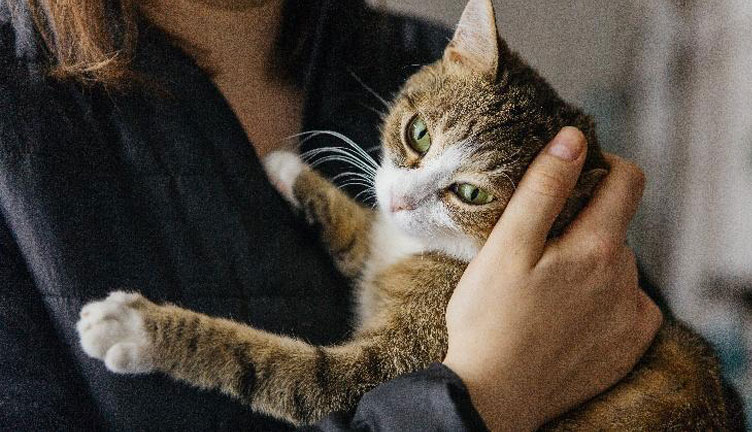
A Purr-fect Sound for a Purr-fect Pet
We hope we’ve provided a helpful answer to the question ‘why do cats purr?’ Try to decipher what your cat is telling you next time they start purring. Maybe they’re trying to convince you to treat them with Bravecto®. Keep your cats parasite-free for 3 whole months with a single dose of your preferred Bravecto® for Cats treatment.
Go for the classic Bravecto® Spot-On for Cats if you’re looking for long-term protection against ticks, fleas and ear mites, or try the new Bravecto® Plus for Cats if you want to keep kitty safe against ticks, fleas and heartworm PLUS treat them for roundworm, hookworm and ear mites.
Subscribe to our Newsletter
Get to know your furry friend better! Sign up for all things dog- or cat-related.
The Hairy Facts about the dreaded hairball
12 April 2021
Help! My dog’s barking mad! Volume 2
12 April 2021
Your Itchy, Scratchy Cat – All About Cat Skin Problems
12 April 2021
The Dog’s Diet: A Bone of contention?
01 April 2021
Mango Fly Worms: How to Spot and Eliminate them
Posted on November 28,2019
Managing Mange And Mites In Your Dog
Posted on June 11,2018
Why Do Cats Purr and How? Learn What Your Cat Is Saying
Posted on October 14,2020
How to Get Rid of Ear Mites in Dogs
Posted on November 06,2019


